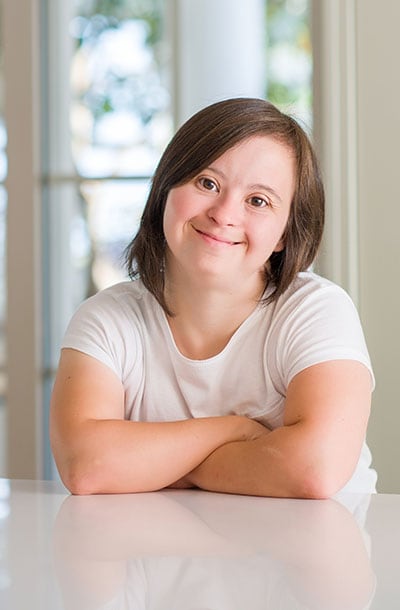The Last Children Of Down Syndrome
|
|
Prenatal testing is changing who gets born and who doesn’t, Sarah Zhang reports in our new cover story. Then: Can you become immune to the coronavirus just by going about your life? |
Our Latest Cover Story
Prenatal testing gives expecting parents more information—and leaves them with complicated choices. In our new magazine cover story, science reporter Sarah Zhang looks at the case of Denmark, which established nationwide genetic testing for Down syndrome more than 15 years ago. Cases dropped dramatically. We caught up with Sarah to discuss what happened next—and why the story is much bigger than Down syndrome. The conversation that follows has been edited and condensed. Caroline Mimbs Nyce: Can you briefly explain what’s happening in Denmark? Sarah Zhang: Denmark was one of the first countries to basically give every woman a screening for Down syndrome when they are pregnant. This happened starting in 2004, and the number of children born with Down syndrome just started dropping immediately. In 2019, only 18 kids were born with Down syndrome in the whole country. Caroline: You’ve spent years reporting on genetics. Why did you want to tell this specific story? Sarah: I’m interested in the ways we make sense of genetic information and how we use that to make choices in our lives. Prenatal screening isn’t new. But I wanted to look back on how the past 40 years of it has changed the way we think about our relationship to our unborn children. Caroline: You wrote that this isn’t just a story about Denmark or even Down syndrome—it’s about something much bigger. Could you explain what you mean by that? Sarah: We look to DNA—or science in general—to answer questions. What really happens when you take a DNA test is you get some sort of answer, but it’s almost never a yes or a no. What you’re really dealing with is more uncertainty. What’s happening here, with prenatal screening for Down syndrome, is that you’re given this result, and suddenly your whole future is blown up with uncertainty. And I was interested in how parents were grappling with that. I was especially interested because there are new ways to test for things like risk of mental illness or heart disease or cancer. If we are finding it so difficult to grapple with the uncertainty of Down syndrome—which is diagnosed with a test that can tell you exactly whether there is an extra 21st chromosome or not—how are you going to deal with tests that give you, say, a probability of something? What’s also been interesting to me is how we use genetics to think about what is “normal”—or to enforce what is normal. Caroline: What do you hope people will take away from this story? Sarah: I hope that people take away that this isn’t something that’s in the future. These aren’t hypothetical designer babies. These are decisions that we are making right now and have been making. Slow-moving change is hard to observe in the moment. Down Syndrome Wikipedia https://en.wikipedia.org/wiki/Down_syndrome American Actor and Singer, Chris Burker List Of Notable People With Down Syndrome https://en.wikipedia.org/wiki/List_of_people_with_Down_syndrome Glee's Lauren Potter |
|





.jpg)
No comments:
Post a Comment